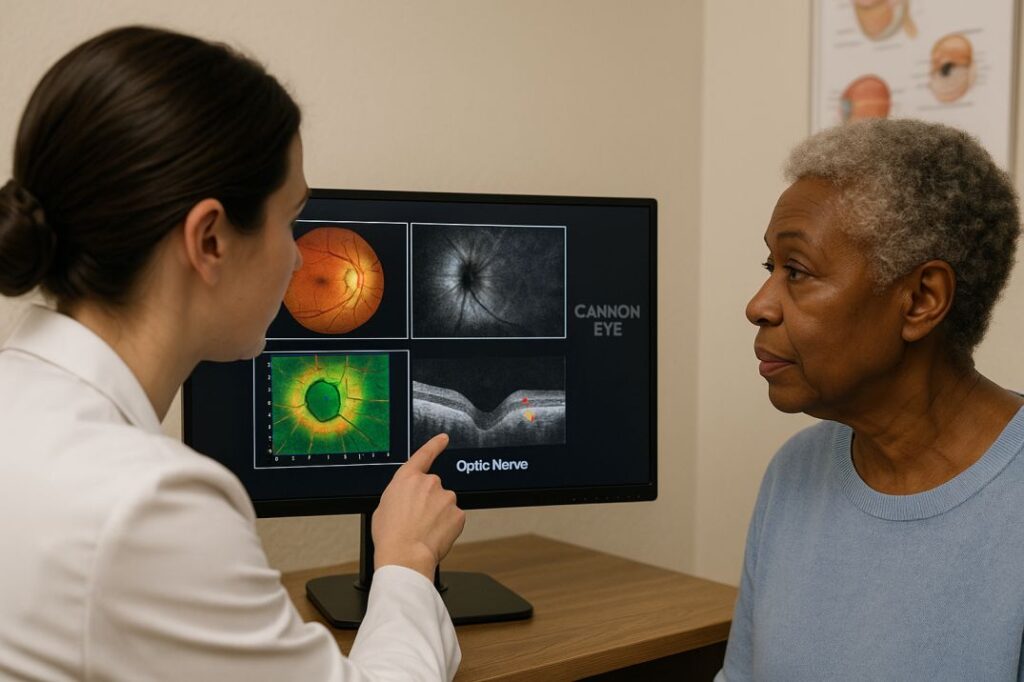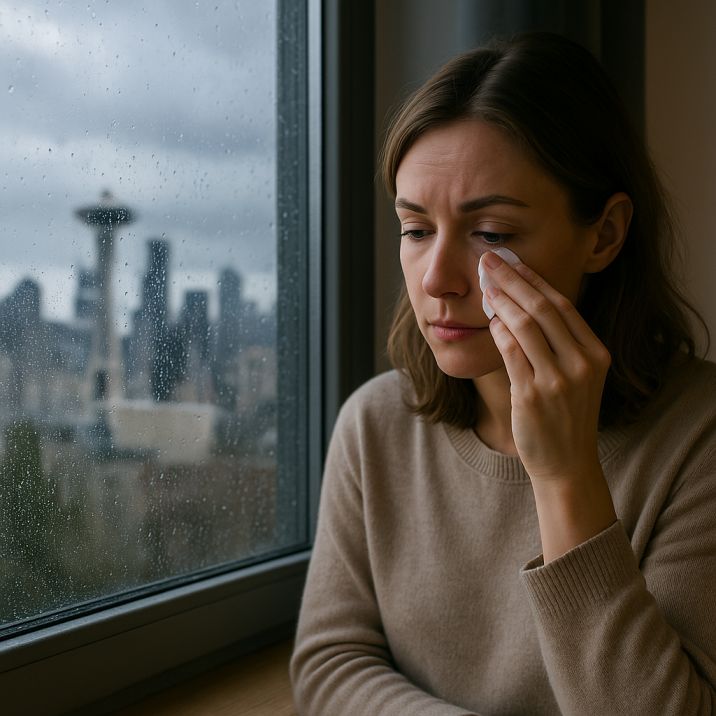Glaucoma in Seattle: Early Detection & Expert Care

What Is Glaucoma? Why Seattle Residents Need Awareness
Glaucoma is a group of eye diseases damaging the optic nerve, typically from elevated inner-eye pressure (intraocular pressure). Undetected, causes irreversible vision loss or blindness.
Critical Facts for Seattle:
-
Silent Sight Threat: Early glaucoma rarely shows symptoms
-
National Impact: Over 3 million affected Americans
-
Seattle Risks: Our aging population and ethnic diversity (including large Asian/Black communities) heighten local vulnerability
-
Prevention: Routine screenings at clinics like Cannon EyeCare are essential
Primary Glaucoma Types:
-
Open-Angle Glaucoma
The most common type, slow progression -
Angle-Closure Glaucoma
Medical emergency causing sudden vision loss -
Normal-Tension Glaucoma
Optic nerve damage without high eye pressure -
Secondary/Congenital Glaucoma
Resulting from other conditions or birth factors
Glaucoma Causes & Seattle-Specific Risk Factors
Glaucoma develops when fluid buildup elevates eye pressure (IOP), damaging the optic nerve. Contributing factors include genetics, eye trauma, steroid medications, diabetes, hypertension, and severe nearsightedness.
High-Risk Groups:
-
Age 60+ (notable for Seattle’s growing senior population)
-
Family history of glaucoma
-
African, Asian, or Hispanic heritage (heightened risk in Seattle’s diverse communities)
-
Pre-existing conditions: Thin corneas, high IOP, diabetes
-
Long-term corticosteroid use (e.g., asthma/arthritis treatments)
Glaucoma Symptoms: Why Seattle Residents Often Miss Early Signs
Glaucoma typically progresses silently with no noticeable symptoms until significant vision loss occurs. Regular screenings remain the only reliable detection method.
Advanced Symptoms (When Damage Has Occurred):
-
Gradual peripheral vision loss
-
Blurred vision or light halos
-
Eye pain/redness (angle-closure emergencies)
-
Sudden vision impairment
Seattle-Specific Screening Guidelines:
-
Immediate Evaluation
Any vision changes – especially difficulty with night driving in rain or navigating crowded areas like Pike Place Market -
Risk Factor Protocol
Annual exams if over 40, diabetic, or with family history -
Preventive Care
Baseline testing by age 40 at Cannon EyeCare, especially for outdoor enthusiasts or tech workers with screen-heavy routines
Glaucoma Diagnosis: Advanced Testing at Cannon EyeCare
Glaucoma requires specialized testing for early detection. At our Seattle clinic, we use:
-
Tonometry: Measures eye pressure (IOP)
-
Ophthalmoscopy: Examines optic nerve damage
-
Visual Field Testing: Maps peripheral vision loss
-
OCT Imaging: High-resolution 3D scans of optic nerve/retina
Understanding Results:
-
Normal pressure (10-21 mmHg) doesn’t rule out glaucoma
-
Optic nerve appearance and vision loss patterns are diagnostic
-
Seattle-specific insight: Cannon EyeCare’s AI analysis compares results against Pacific Northwest population data for personalized assessments
Modern Glaucoma Treatments: Seattle’s Cutting-Edge Options
Treatment goals focus on lowering eye pressure to prevent nerve damage:
Proven Methods
-
Medications: Eye drops/oral drugs (new preservative-free options)
-
Laser Therapy: SLT/ALT for improved fluid drainage
-
Surgery: MIGS implants (minimally invasive) for qualifying Seattle patients
Innovations Available Locally
-
iDose® TR Implant: Sustained medication delivery (reduces daily drops)
-
AI Monitoring: Tracks subtle changes using Cannon EyeCare’s diagnostic tech
-
Gene Therapy Trials: UW Medicine partnerships explore hereditary solutions
Daily Glaucoma Management: Thriving in Seattle
Effective management combines medical care and lifestyle adjustments:
Essential Practices
-
Strict medication adherence (use smartphone reminders)
-
Proper eye drop technique (request in-clinic training)
-
Bi-annual pressure checks at Cannon EyeCare
Northwest Lifestyle Tips
-
Diet: Consume kale/spinach + Puget Sound salmon twice weekly
-
Exercise: Walk Green Lake trails (avoid inverted yoga poses)
-
Eye Protection: Year-round UV-blocking sunglasses
Glaucoma Prognosis: A Hopeful Outlook for Seattle Residents
With early detection and consistent care:
-
Over 95% retain functional vision lifelong
-
Vision loss is irreversible but preventable
-
Untreated cases risk permanent blindness
FAQs
-
Glaucoma is a group of eye diseases that damage the optic nerve, often causing gradual vision loss—especially side vision—if not treated early



